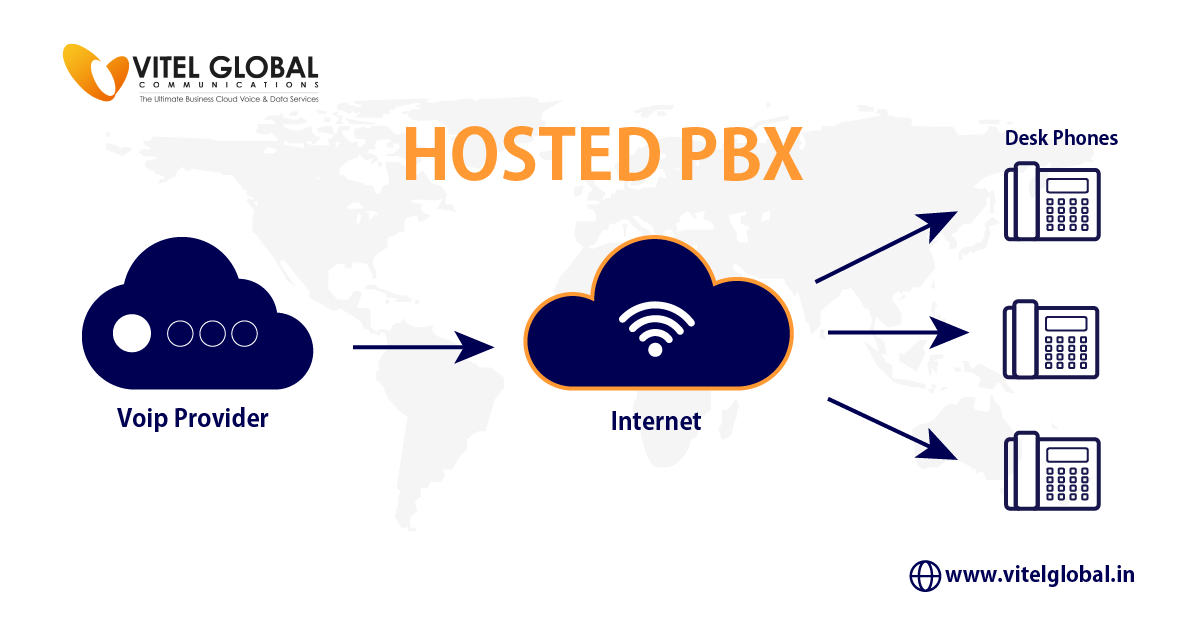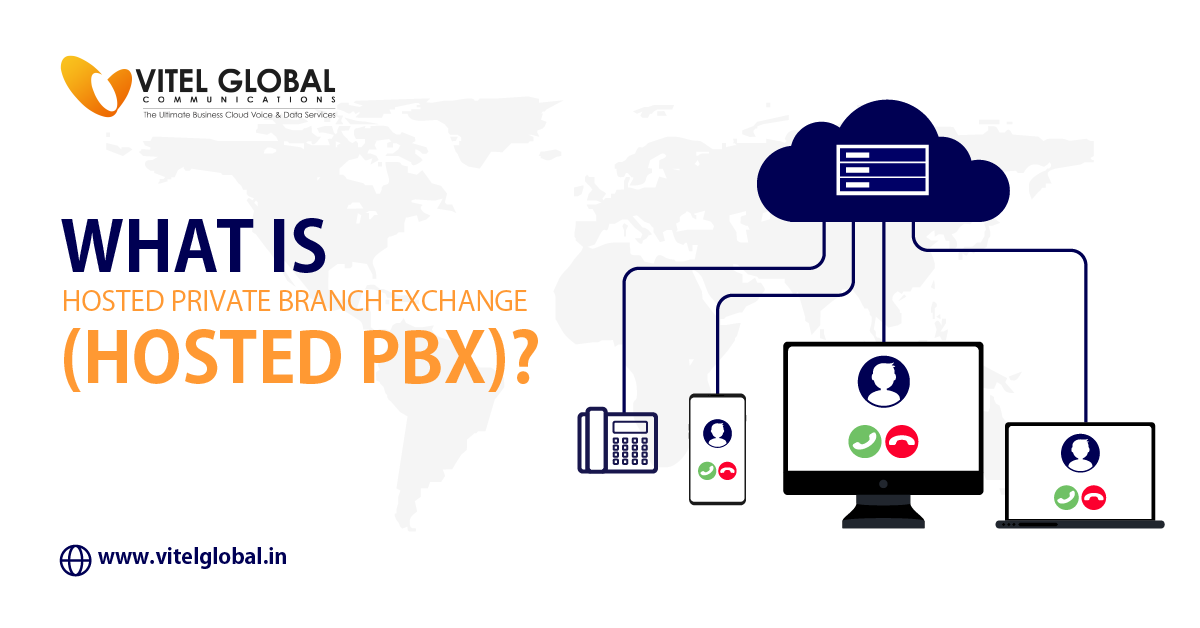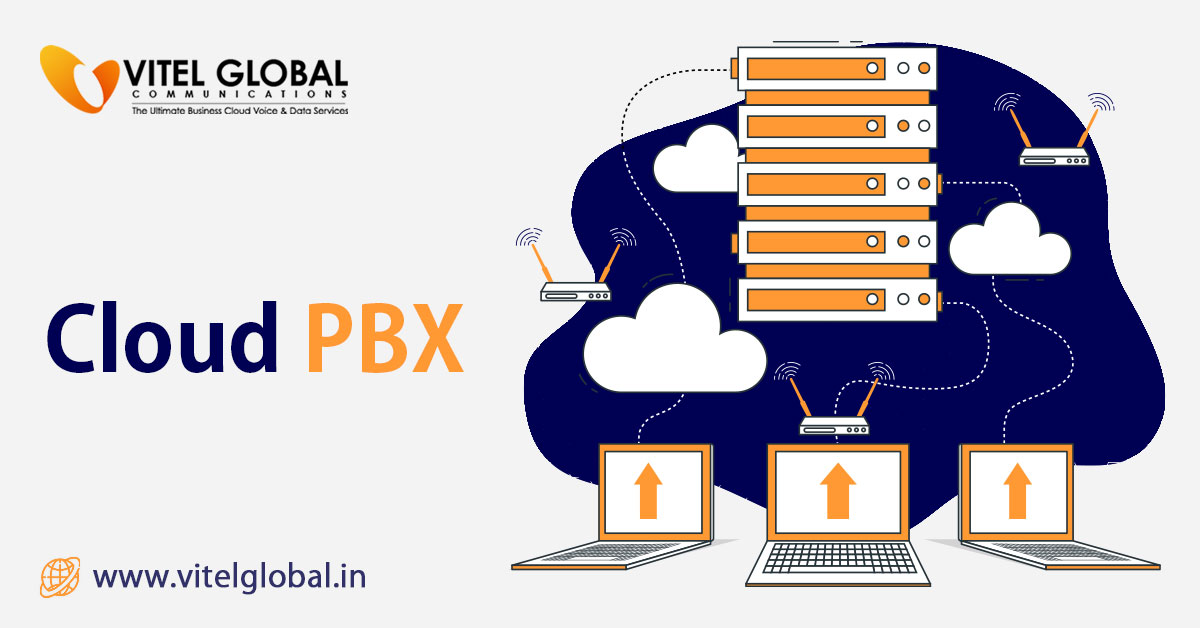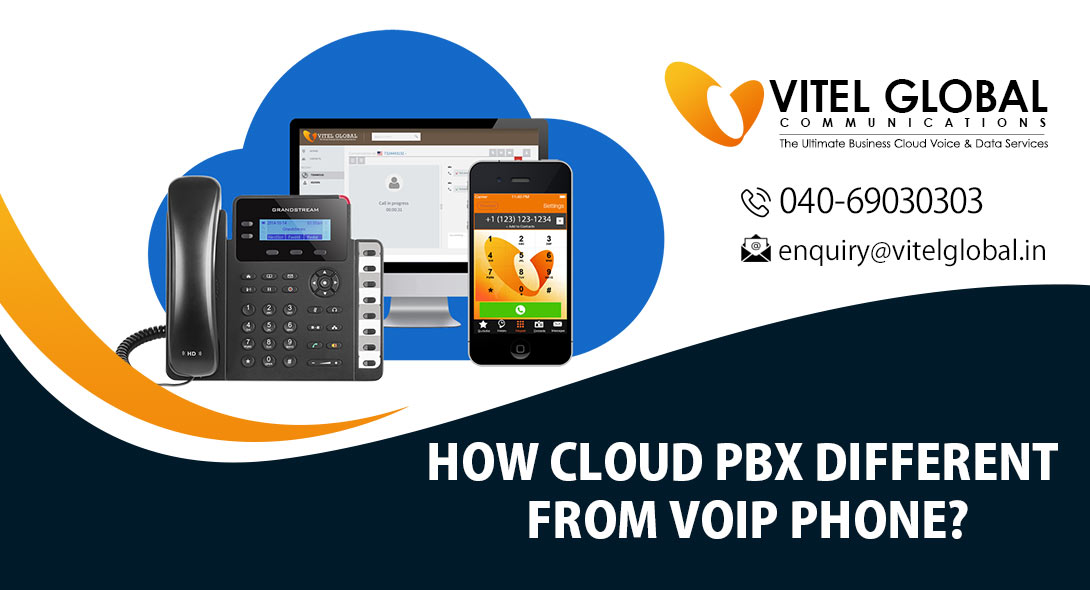Table of Contents
A hosted PBX, essentially a cloud-based phone system, saves money and requires less maintenance because it is kept online and away from the company’s physical location.
The term “PBX” stands for “Private Branch Exchange,” which enables the transfer of calls between different lines within an organization. Initially rooted in analog PBXs, telephone operators manually handled and switched lines to connect calls to the right individuals.
Nowadays, the function is online; therefore, the name IP PBX. Additionally, hosted IP PBX is frequently referred to as virtual PBX and cloud PBX; all words refer to PBX in the cloud.
No need to spend on software, hardware, training, or maintenance. A hosted private branch exchange phone system is fully managed off-site with minimal installation costs. These factors drive more companies to choose a cloud PBX service provider as a cost-effective and efficient office phone service option. Later on in this article, we will go over further advantages of PBX cloud services.
If you’re considering a hosted PBX phone system for your company, our comprehensive guide will provide all the information you need to get started.
How Does Hosted Private Branch Exchange Work?
The PBX provider, a VoIP phone, and the Internet are the three fundamental parts of a virtual PBX. Once everything is set up, your phones will establish an ongoing Internet connection for incoming and outgoing conversations with the PBX server.
When you move to cloud-hosted phone services, your Hosted Private Branch Exchange provider effectively replaces your phone company by routing all incoming and outgoing calls through them.
Our service provider maintains your entire phone system. All of your calls will be sent to another of their data centers if one of their data centers goes down, keeping your phone system operational at all times.
A group of employees at the PBX supplier will be working to guarantee that you receive effective and secure phone services.
Your service provider will configure and maintain everything, so all you and your staff need to do, to make and receive calls online is sign up for a portal. You can promptly update your web portal with just a few mouse clicks if you need to change your settings.
The Difference between Hosted PBX & Traditional PBX
A regular PBX and a hosted PBX differ primarily in their transmission methods. A hosted PBX uses VoIP technology to transmit voice traffic over the Internet via a broadband connection for calls. At the same time, a conventional analog PBX relies on a copper cable to connect to the PSTN, providing reliable but basic voice conversations.
Finding a typical analog PBX, often known as a Plain Old Telephone Service (POTS), is getting harder and harder.
Analog PBX offers basic functionalities like speed dial, hold, mute, and call transfer. In contrast, a Hosted Private Branch Exchange provides advanced features such as auto attendants, blocklists, allowlists, call queuing, call forwarding, voicemail, business conference calls, and SMS capabilities.

The Advantages of Hosted PBX
Setting up has many advantages, but the biggest benefit over a traditional PBX is the cost savings for initial configuration, setup, and ongoing maintenance.
It offers several key advantages, including:
- Flexibility to quickly scale up or down to meet need
- On-demand access to local and toll-free phone numbers
- Better capacity to handle an increase in incoming calls
- Removes the additional expenses related to standard PBX setup, maintenance, and updates.
- We improve existing features without incurring additional costs and add new features.
- Increased dependability and security
- Sophisticated infrastructure and dedicated servers guarantee business continuity with zero downtime.
Remote Working is Not a Problem
Businesses that embraced remote work enabled their staff to work from home seamlessly, ensuring uninterrupted business operations during the COVID-19 pandemic. Your staff can access your phone system anywhere if they have an internet connection. You do not need additional software or hardware to route calls to your phones or laptops.
Set Up Quickly, Low-level Maintenance
Setting up a private branch exchange incurs minimal downtime, typically just a few days. Unlike a typical PBX, there is no need to install on-site infrastructure. Once set up, your service provider handles all the upkeep and updates. This eliminates the need to employ a full-time worker to manage an on-site PBX and pay ongoing operational costs.
Flexibility More Than Imagined
Organizations can quickly alter call settings with Hosted Private Branch Exchange, providing unmatched flexibility. With Cloud PBX, you can easily adjust options like voicemail to email, call forwarding, and call transfer, and turn them on and off whenever you choose. You can now instantly implement call settings without waiting for your telecom operator or incurring fees. As an alternative, hosting PBX puts you in charge.
Reliability with Highly-Performing
A Hosted Private Branch Exchange will also significantly improve the security and dependability of your company. It eliminates many potential problems because it doesn’t rely on a landline. Your service provider will have a network of backup data servers spread nationwide, ensuring business continuity.
If your firm experiences physical setbacks, such as a technical glitch or natural calamity, you can rest assured that your telephony system will continue operating remotely or on-site.
The Future of Hosted PBX
Even just the previous years have seen significant changes in the workplace. The pandemic obligated us to work exclusively from home. Several companies switched to hosted PBX solutions to enable this, allowing their staff to continue taking calls while working remotely. Those still using a PBX (such as hotels with phones in every room) usually do so because they made sizable upfront payments for the hardware and software licensing and may still repay the debt. Indeed, the nature of the workplace has changed from regimented offices to those that value greater flexibility. It’s time for your company’s phone system to adapt to the new situation.
IT managers and business owners both value goods and services that simply function. Gone are the days of attempting to cut costs by managing an old Windows server that runs outdated PBX software. It is a good example of stepping on dollars to grab pennies.
The Migration to the Cloud has Already Begun.
The use of hardware in the modern office will continue to decrease. Desk phones will no longer be the norm in favor of softphones. Call centers will continue replacing outdated PBXs with modern Hosted Private Branch Exchanges that link their agents worldwide with only an internet connection.






